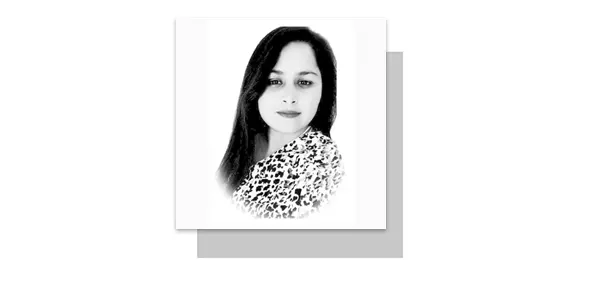I hope as Muslims we all should be aware of what happened on the occasion of Eid Ul Adha, in Sweden where Sweden’s Supreme Administrative Court overturned a police decision to ban Quran burning protests in February, saying security risk concerns were not enough to limit the “right to demonstrate”. Whenever we talked about Islamophobia, many around the world rejected it and finally people started accepting the ideology revolving around the Muslims and declared 15th March as International Day to Combat Islamophobia. If you still have any confusion, see the concept of Islamophobia, which is actually the irrational fear or prejudice against Islam and Muslims. It continues to persist as a pressing issue in Europe. This article sheds light on the prevalence of Islamophobia in the region and highlights the importance of confronting this bias to foster a more inclusive and harmonious society.
So, Islamophobia encompasses a range of negative attitudes, stereotypes and discriminatory practices towards Islam and its followers. It manifests in various forms, including verbal abuse, physical attacks, institutional discrimination and prejudiced policies. And now the decision of the Swedish court which allows anyone to burn Muslims’ Holy Book. It is crucial to recognize that Islamophobia goes against the principles of equality, respect and human rights that Europe upholds. Europe has witnessed a rise in Islamophobic incidents in recent years. Factors such as cultural differences, socio-economic challenges and misinformation have contributed to the spread of fear and prejudice. The negative portrayal of Islam in media and the influence of far-right ideologies have also played a role in perpetuating Islamophobia across the Continent.
I believe Islamophobia has far-reaching consequences, both for individuals and society as a whole. Muslims face discrimination in various areas of life, including education, employment and housing. Moreover, the psychological impact of Islamophobia can lead to feelings of isolation, anxiety and a sense of not belonging. Confronting Islamophobia requires collective efforts from individuals, communities, governments and institutions. Education can play a pivotal role in dispelling myths and promoting understanding of Islam and Muslim culture. Public awareness campaigns, interfaith dialogues and cultural exchange programs can bridge gaps and foster empathy. Most importantly, it is crucial to encourage media outlets to portray Islam and Muslims in a fair and accurate manner, countering stereotypes and negative narratives.
Reading many articles and news about the Swedish news, I realized, the West is again and again using words like “Islamist” “Islamist or Muslim Terrorist”, “Muslim Radicals” and “Islamic extremism.”. The media outlets should reconsider their editorial policies while writing about any religion. Talking about legal and policy-related measures, the governments must enact and enforce robust legislation against hate crimes, discrimination and Islamophobic acts. They should ensure that law enforcement agencies are adequately trained to identify and address Islamophobic incidents. Promoting diversity and inclusion policies in various sectors, such as education and employment, can help create a more equitable society.
As it is not just Muslims but the rest of the religions are under threat. While freedom of expression is a fundamental human right, its exercise can sometimes lead to conflicts and hurt sentiments. It is important to note that the impact is not limited to any particular religion, as various religions have faced challenges related to freedom of expression at different times and in different parts of the world. Various other religions, including Christianity, Judaism, Hinduism and Sikhism, have also experienced controversies and hurt sentiments stemming from freedom of expression. Offensive depictions, criticism and mocking of religious beliefs, symbols and historical events have led to debates and protests within these communities. For example, the portrayal of the Last Prophet (PBUH), the denial of the Holocaust, satirical depictions of Hindu deities and ridicule of Sikh religious symbols have all caused offense and been a source of controversy and hurt feelings.
It is important to note that the impact of freedom of expression on religions should be balanced with the need to promote tolerance, respect and understanding. While individuals have the right to express their opinions, it is crucial to consider the potential consequences and strive for responsible and respectful dialogue that does not unnecessarily infringe upon the rights and dignity of others. The people’s focus on building strong interfaith and intercultural relationships is essential for combating Islamophobia. Encouraging community engagement, organizing multicultural events and fostering dialogue among diverse groups can help break down barriers and dispel stereotypes. It is vital to emphasize shared values and celebrate the contribution of Muslims in European society.
Education serves as a powerful tool in combating fear and fostering empathy. By educating ourselves about Islam and engaging in interfaith dialogue, we can break down barriers and overcome stereotypes. Avoiding sweeping generalizations and treating individuals based on their merits, rather than preconceived notions, is a crucial step towards combating fear. Fear and prejudice towards Muslims and Islam stem from a lack of knowledge and understanding. By actively seeking to educate ourselves, challenge stereotypes, build personal connections, promote responsible media coverage and encourage institutional support, we can work towards a more inclusive and empathetic society. Let us focus on promoting unity, compassion and respect, so that we can overcome fear and build bridges of understanding between diverse religious communities. Together, we can create a future where religion is no longer a source of fear but a catalyst for harmony. Whether you believe it or not, you would feel hurt if someone burned your sacred belongings.
—The writer is journalist and doing research on fake news in South Asia
Email: [email protected]









